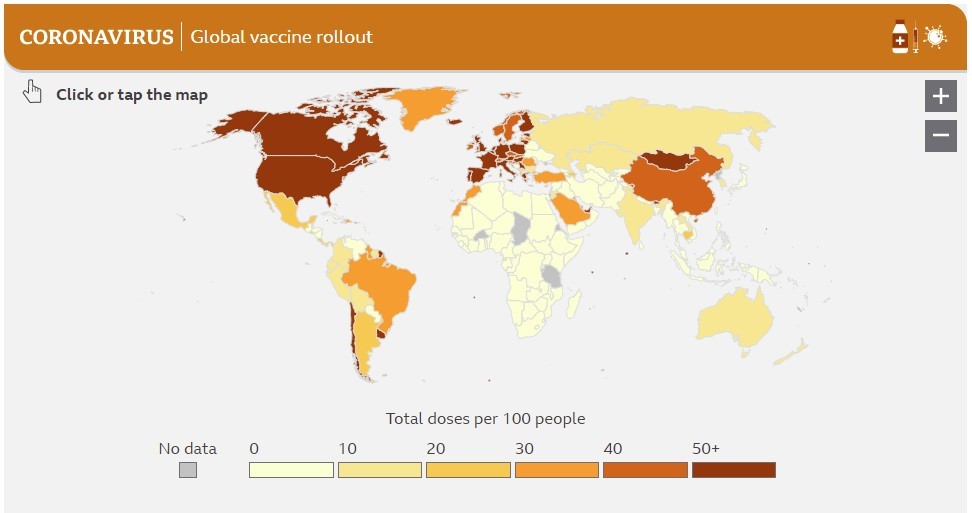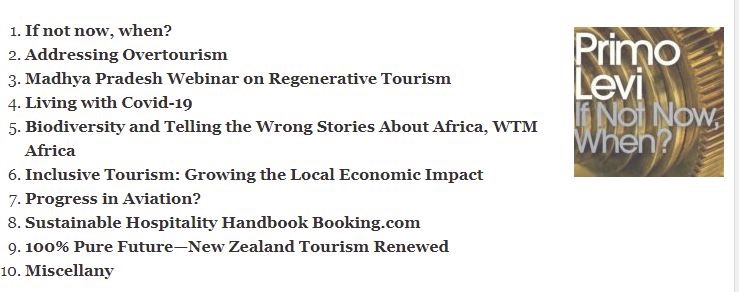Global coronavirus cases continue to rise; deaths have also been increasing. However, official figures may not fully reflect the actual number in many countries. As the World Health Organisation constantly reminds us, a global pandemic requires a world effort to end it – none of us will be safe until everyone is safe. There are still many destinations worldwide reliant on tourism for nationally significant numbers of livelihoods and precious foreign exchange, which dare not open their borders.
During the 1918-20 influenza pandemic, only one treatment had any efficacy: transfusing blood from recovered patients to new victims. In the 1930s, there were experiments with vaccines, and in the 1940s, the US military developed the first approved inactivated vaccines for influenza. Viruses mutate, and an accumulation of mutations create new variants. Variants of concern are more effective at transmitting themselves and evading detection by human immune systems.
Each year vaccines are tailored to counter the influenza virus strains thought likely to be virulent in the flu season; effectiveness varies from year to year. Recent studies show that flu vaccination reduces the risk of flu illness by between 40% and 60% among the overall population during seasons when most circulating flu viruses are well-matched to the flu vaccine. When there is a good match between the flu vaccine and circulating viruses, it is possible to measure substantial benefits from flu vaccination in preventing flu illness and complications. more
We have learnt to live with the influenza virus, which, like Coronavirus, mutates.

Globally, influenza causes an estimated one billion cases of influenza, resulting in 290,000 to 650,000 deaths per year. Annual vaccination is recommended because immunity from vaccination wanes over time, and the virus mutates continuously. Influenza vaccination always reduces the severity of disease, complications like pneumonia, and death.
In an effort to take the nationalist politics out of the discussion of Covid-19, Maria Van Kerkhove, the WHO’s Covid-19 technical lead has argued that “No country should be stigmatised for detecting and reporting variants, the UK Kent variant is now Alpha, the South African variant is Beta, the Brazil variant, Gamma and the India variant Delta. full list
For the less developed countries learning to live with Covid is a major additional burden. Most of the world remains unvaccinated. The BBC has an interactive web page with graphics showing the continuing rise in cases and progress with vaccination. The map makes it evident that there are large areas of the world with meagre rates of immunisation.

None of the transition to living with Covid-19 is going to be easy. Caroline Bologna has asked whether it is ethical to travel internationally before the world is vaccinated? There are reports in the mainstream press of more than 1,200 vendors operating in the UK and worldwide, offering false documents for as little as £25. more Border staff ‘catching 100 fake Covid certificates a day’ at the UK border. more The Coronavirus is likely to continue to mutate, they evolve.
Scientists are warning that we have created “a perfect storm” for diseases from wildlife to spill over into humans and spread quickly worldwide. “In the last 20 years, we’ve had six significant threats – SARS, MERS, Ebola, avian influenza and swine flu,” Prof Matthew Baylis from the University of Liverpool told BBC News. “We dodged five bullets, but the sixth got us. “And this is not the last pandemic we are going to face, so we need to be looking more closely at wildlife disease.” Many scientists agree that our behaviour – mainly deforestation and our encroachment on diverse wildlife habitats – is helping diseases to spread from animals into humans more frequently. On June 1st China reported a first human case of H10N3 bird flu.
Between 2011 and 2018, the WHO tracked 1483 epidemic events in 172 countries. Epidemic-prone diseases such as influenza, Severe Acute Respiratory Syndrome (SARS), Middle East Respiratory Syndrome (MERS), Ebola, Zika, plague, Yellow Fever and others, are harbingers of a new era of high-impact, potentially fast-spreading outbreaks that are more frequently detected and increasingly difficult to manage. The report is available to download.
The travel and tourism sector is learning to cope with this pandemic; we must learn and remember the lessons; it is likely to happen again, hopefully not for a long time. We need to be better prepared and more resilient next time.
David Malpass, World Bank Group President, has called for more urgent action to make the approved vaccines available for everyone. As the World Health Organisation constantly reminds us, a global pandemic requires a world effort to end it – none of us will be safe until everyone is safe. There are still many destinations worldwide reliant on tourism for nationally significant numbers of livelihoods and precious foreign exchange, which dare not open their borders. For the less developed countries learning to live with Covid is a significant additional burden.
Nominations for the Responsible Tourism awards are now open, and this time they’re global. They’re free to enter, and the deadline is August 31st 2021. Categories:
- Decarbonising Travel & Tourism,
- Sustaining Employees and Communities through the Pandemic,
- Destinations Building Back Better Post-COVID,
- Increasing Diversity in Tourism: How inclusive is our industry?
- Reducing Plastic Waste in the Environment and
- Growing the Local Economic Benefit.
Click here to learn why entering makes business sense

Want to receive the latest WTM Responsible Tourism news? Sign up to our newsletter and opt in for updates about Responsible Tourism, you can opt out of news you do not wish to receive.
